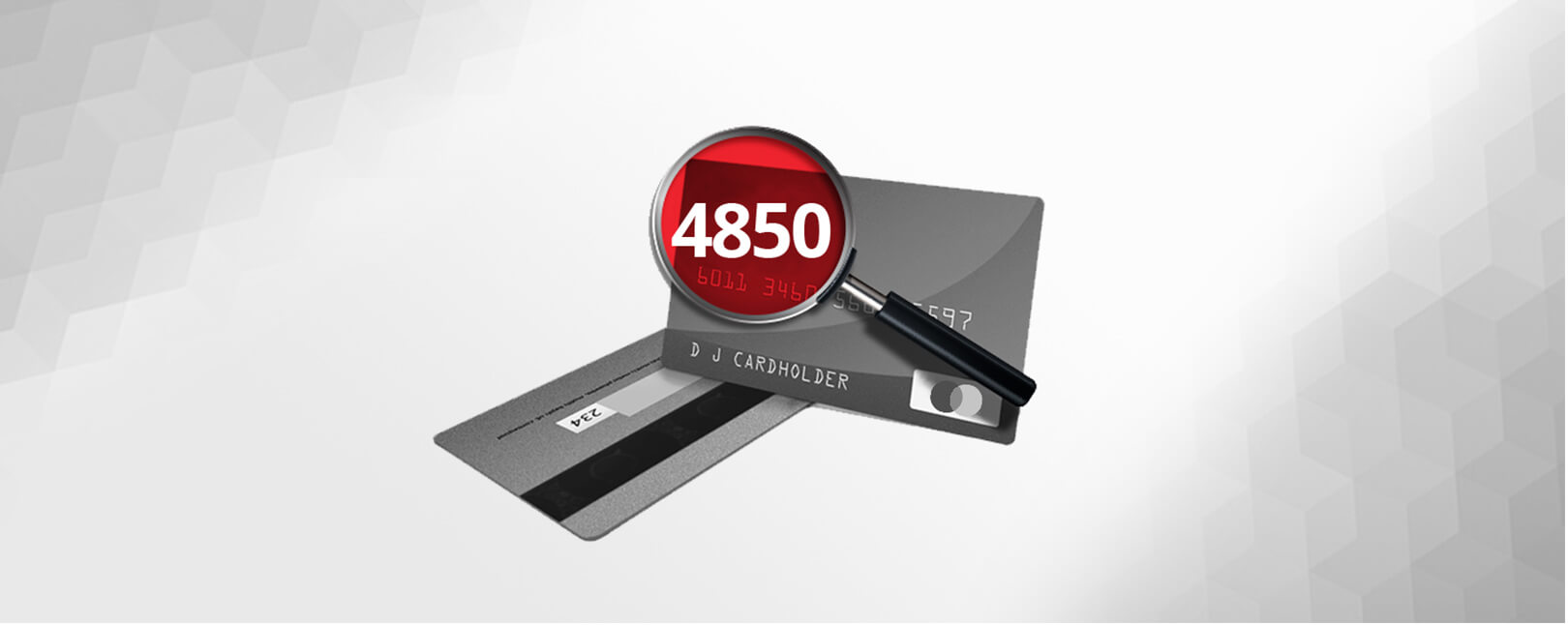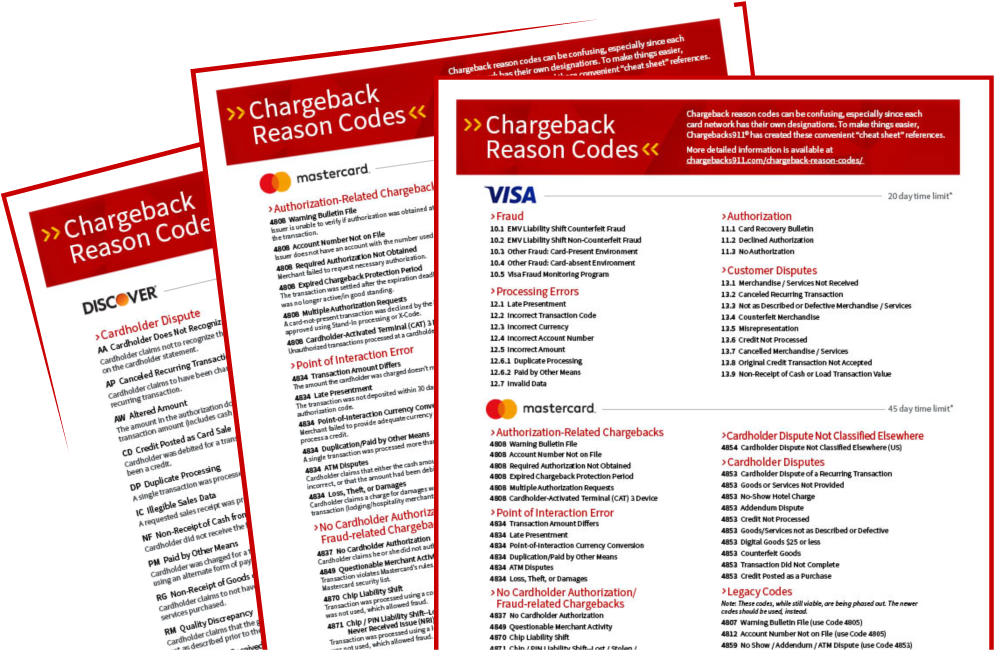Master Reason Code 4850: Installment Billing Dispute
Chargeback reason code 4850: Installment Billing Dispute refers to customer complaints involving installment billing. The installment billing can be either acquirer-financed or merchant-financed; both are susceptible.
These are cases where a customer is unhappy with a transaction, but feels feel the situation can’t be resolved through the merchant. In such circumstances, Mastercard may allow the cardholder to reverse the credit card transaction by filing a chargeback. To simplify this process, situations that may qualify for a chargeback are broken down into designated “reason codes.”
Banks assign the appropriate code to each case so everyone knows the given reason for the chargeback. We say the given reason because it may or may not reflect the true reason. Even if they suspect the cardholder is making an invalid claim, however, merchants must respond to the reason code presented by the bank.
The process is further complicated by the fact that each card network has its own set of reason codes. While most of the same scenarios are covered, the designations can vary considerably. Understanding which code is which can be challenging, so we’ve created guides to help merchants know how best to fight or prevent the different reason codes.
With that in mind, let’s take a look at Chargeback Reason Code 4850: Installment Billing Dispute.
Should Merchants Worry About Reason Code 4850 Chargebacks?
Chargeback questions? We have answers. Click to learn more.

What is a 4850 Chargeback?
Mastercard chargeback reason code 4850 is subtitled “Installment Billing Dispute.” That sounds pretty specific, and to tell the truth…it is. As the name implies, this code is used for disputes arising from domestic transactions under installment billing contracts.
Installment billing is a popular and flexible payment option that allows consumers to purchase goods or services they otherwise might be able to afford. It can be used on anything from small electronics to automobiles and houses. The cost of the purchase is then divided into portions that are due regularly over a set period.
Reason code 4850 is specifically used for transactions in which a credit card is used to make a payment on an installment loan. It might seem odd that a consumer would make such a transaction, since credit cards and installment programs generally work the same way. That said, acquirer- or merchant-financed programs may offer advantages over traditional credit cards.
A merchant-backed plan, for example, may charge less (or no) interest. It also means customers don’t have to tie up available credit on their existing credit card. And of course, the individual payment in question might be made with a debit card, instead of a credit card.
Chargebacks filed with reason code 4850 must be processed either:
- 120 days from the end of service (maximum of 540 calendar days from the transaction settlement date for ongoing services); or
- Between 15 and 120 calendar dates from the transaction settlement date; or
- Between 15 and 120 calendar dates from the delivery date of goods (or cancellation date of services).
Installment Billing Disputes: Causes and Conditions
So what cause a chargeback to be given a 4850 reason code? There are actually several scenarios where this code may apply:
- The cardholder claims that the number of installments billed, or the amount billed, differs from the arrangement agreed at the time of purchase.
- An installment was billed prematurely.
- The number of installments submitted differs from the number of installments authorized by the issuer.
- The transaction is mislabeled and is not actually an installment billing transaction.
- The acquirer accelerated the processing of installments without the issuer’s consent.
It’s natural to assume that most chargebacks are the result of criminal activities like identity theft or account takeover. In reality, though, reason code 4850 chargebacks more commonly result from errors in merchant policies or practices, or from cardholder attempting to force an unearned payment reversal through the bank.
Responding to Mastercard Reason Code 4850 Chargebacks
In some instances, it could be argued that the merchant is at least partially at fault for not making sure the customer understood the agreement. Other times, though, the customer may intentionally or unintentionally make false statements. This is what’s commonly referred to as friendly fraud. In these cases, merchants have the right to challenge the cardholder’s claim.
The merchant can recover their revenue if they manage to provide documentation showing that the cardholder agreed to the installment plan as it has been carried out (or that any discrepancies have been corrected). This should then be submitted as part of the representment process.
A mistake on the customer’s part may be just that: a mistake. Misreading an installment contract or mixing up dates, for example, can lead to confusion. Either way, the merchant shouldn’t pay for the customer’s misunderstanding.
Can Mastercard 4850 Chargebacks Be Prevented?
Fortunately, these types of chargebacks are often entirely preventable. Merchant missteps, such as not clearly explaining the terms of the installment contract, billing for the installment sooner than promised, billing extra installments, or mislabeling transactions, are all common triggers. Abiding by best practices for recurring billing can prevent these issues. The best thing the merchant can do here is strengthen customer service and quality control to ensure the error isn’t repeated in the future.
Care must be taken to ensure the conditions, timeframes, and amounts of installment plans are very clearly and carefully presented and explained. This is doubly important if the business offers installment plans through an outside resource such as a financing company.
The more concise and clear the terms of the plan, the less likely a legitimate dispute will arise. Unfortunately, there’s no sure way to identify friendly fraud before it happens. Merchants can do everything “right” yet still have an unwarranted cardholder dispute chargeback filed against them.
It’s generally more efficient to take a proactive stance with all aspects of chargeback management. For a truly effective strategy, however, it is equally important to dispute cases of friendly fraud.
Chargebacks911® can help your business manage all aspects of chargeback reason codes, with proprietary technologies, experience-based expertise, and the industry’s only performance-based ROI guarantee. Contact us today for a free analysis to learn how much more you could save.










